#national association of hispanic journalists
Text
WRITER’S FORUM HISPANIC JOURNALISTS
WEBSITES HELPFUL TO WRITERS
This is a series of posts which, I think, will be beneficial to writers.
But first, I would like to include my usual warning about using websites.
Whenever you check a website you are, in my opinion and I talk from experience, being put on a list for sale. So, expect the possibility of being bombarded by ads from companies you, perhaps, have never…
#hispanic jounalists Mexico#hispanic journalist annual convention#hispanic journalist career center#hispanic journalist online training#hispanic journalist opportunities#hispanic journalists#hispanic journalists Caribbian#hispanic journalists U.S.#hispanic journalists workshops#hispanic writers#NAHJ.org#National Association of Hispanic Journalists#publishing#Walt Trizna#writers#writing
0 notes
Text
Time to talk about Trump's address to the National Association of Black Journalists? Yeah, it's been a few days since I beat up on the political media, but here we are again. This is a bit of a LONG RANT (TM).
First, though, this is not a critique of the black journalists who questioned Trump at the event. They did way better than the usual interviewers, asking him tough questions, following up when he didn't answer, and calling him out when he lied. That's real journalism and Rachel Scott, in particular, did a great job. Go find her, she reports for ABC News.
All that said, we have to talk about the broader narrative that emerged from the event because there's a lot of bad reporting on the topic. Specifically, the narrative that Trump was attempting to reach black voters. It's wrong and it's wrong for the same reason that it was wrong to say that at the Republican National Convention when they spent an entire day having conservative black people speak. Let me explain.
If you're reaching out to any group of voters, the first thing you do is talk about issues that they want to hear about. I'm not giving Trump a ton of credit for intelligence or deep knowledge of policy, but he knows how to play to a crowd as do the strategists on his campaign. Both at the RNC and at the NABJ, though, he and other Republicans didn't address a single issue of concern to African-American voters. They didn't address systemic racism or even regular racism, they didn't address the economy or jobs, they didn't address policing or crime policy, and they didn't address health care policy or voting rights. What did they talk about?
Glad you asked, they talked a lot about how Democrats have brainwashed black people to vote for them and about how Kamala Harris isn't really black. These, obviously, aren't issues that are relevant to most African-Americans, so who does think they're relevant? Well, if you spend a lot of time watching conservative media, I'm sure you realize that they think it's relevant! Really relevant! In fact, if you watch conservative media, these may be the only race-related issues you hear about.
So why are they going to black people and talking about issues from conservative media? Well, obviously, there's a "play to the base" thing going on here, but there's a bit more to it. Let's game this out.
Trump has a racism problem. From opening his first campaign by demonizing Hispanic people to both-sidesing white supremacist murder to casually courting white supremacist militias and demonizing majority black countries, he's got a bit of a history here that even people who mostly get their news from conservative media are aware of. In looking at polling and focus groups and even the results of the GOP primary, it becomes clear that there are a lot of conservatives, people who get most of their news from conservative media, who are nervous about looking racist for supporting him.
I'm sure you know the type of people I'm talking about. They're convinced that Republicans are "good for the economy", but in a very vague way, and they get very uncomfortable when race is discussed. Not necessarily because they think the government should do racist things, but because they are uncomfortable with the moral implications of addressing past racism. These people, not African-Americans, are the audience for Trump's NABJ appearance.
To understand that, think about what they saw on FOX News or OANN. They saw Trump go to a conference of black journalists and they saw him talk about issues that they think are perfectly reasonable; after all, their favorite "news" people have been discussing these issues for years.
(A note to those who think this is all a bit strange, you're not wrong, but there IS some kind of logic behind this. You see, in conservative media, racism isn't real or at least not significant, so claiming black identity can only advantage you thanks to Affirmative Action/DEI. In that worldview, it's not racist to question someone's claim to blackness because you're just trying to determine whether they truly "deserve" the "advantage" of blackness. Needless to say, African-Americans DO see this as a racist question; no one ever has to prove their authentic whiteness.)
So anyways, Trump goes up and talks directly to black people, does that seem like something a racist would do? Of course not! Especially when he's talking about such perfectly reasonable issues. And then they saw these people being so hostile to him. Clearly African-Americans are hostile to him generally, he didn't even say anything racist! Maybe it's true, maybe they are just brainwashed by Democrats.
Don't believe me? Watch conservative media, you'll see exactly this train of thought repeated over and over and over again. Trump didn't go to the NABJ to woo black voters, he went there to perform some theater in order to convince white voters that he's not "really" racist.
Now, this has backfired a bit for him, the NABJ address got a lot more broad media coverage than I think he was hoping for, so a lot of people who don't spend most of their time in the conservative media swamps got to see him say things that most people see as patently racist. Part of it is that, as mentioned above, this wasn't a niche conference for journalists at minor publications, at least some of the black journalists work at major news outlets and, because of that, some of those major news outlets covered the story.
But they didn't cover the whole story. If you heard a narrative about Trump trying to woo black voters and blowing it, I hope I made clear above that you missed what was really going on. And by missing what was really going on, you're not able to judge whether it was successful or not. More importantly, though, is that it prevents you from making an accurate judgement of the character of the candidates.
Whether you think that Trump addressed the NABJ to woo black voters or to comfort white voters will make a big difference on how you judge him as a candidate! A racist who pisses off black voters to win white voters is very different from an oaf who simply screws when trying to win black voters and the lack of explanation of this particular facet of this incident is where the political news media has failed the voters of this country.
#politics#us politics#trump#nabj#national association of black journalists#news media#political news#rachel scott#racism
2 notes
·
View notes
Text
ABC NEWS ANNOUNCES JACLYN LEE AND MELISSA ADAN AS MULTI-PLATFORM REPORTERS
Wendy Fisher, ABC News senior vice president of Newsgathering, sent the following note to the news division announcing that Jaclyn Lee and Melissa Adan are joining ABC News as multi-platform reporters.

Pictured from left: Jaclyn Lee, Melissa Adan
I am excited to share that two new multi-platform reporters are joining our team this week. Jaclyn Lee begins today in New York, and Melissa Adan starts later this week and will be based in Los Angeles.
Jaclyn Lee joins us from our very own WPVI-TV in Philadelphia, where she served as an anchor/reporter since 2020. During her tenure, she spent time in the field, reporting on COVID-19, civil unrest, the 2020 presidential election and the unprecedented 2021 winter storm in Houston. Additionally, in response to the increase in anti-Asian American hate crimes nationwide, Jaclyn pitched and carried out an anti-Asian hate crime PSA that aired on OTV stations across the country.
Prior to WPVI, Jaclyn worked as a general assignment reporter and anchor at WVEC-TV, the ABC affiliate in Norfolk, Virginia. There she sharpened her investigative skills, reporting from the Virginia State Capitol on the blackface scandal and sexual assault allegations facing top state politicians. Jaclyn also spearheaded investigations into crucial shortages in the U.S. Navy, which caused officials to take action. Jaclyn’s work has also taken her around the globe. She reported on protestors against Machu Picchu tourism in Peru, the effort to preserve minority cultures in China, and the large number of sea lions dying in Chile, and she researched the aftermath of the 1994 genocide in Rwanda. Before relocating to Virginia, Jaclyn worked in Raleigh, North Carolina. She holds a degree in broadcast journalism from the University of North Carolina - Chapel Hill.
Melissa Adan comes to ABC from NBC 7 and Telemundo 20 in San Diego, where she worked as a general assignment news reporter and anchor since 2018. She is bilingual in English and Spanish, and her reporting has taken her worldwide. She recently traveled to Vatican City to cover Pope Francis’ appointment of new cardinals, has reported from Mexico on the immigration crisis at the border in Tijuana and Ciudad Juarez, and covered the 2018 migrant caravan in Tijuana. Her reporting in Australia on climate change in the aftermath of destructive wildfires won her a regional Emmy. She received the Al Neuharth Investigative Journalism Award from the National Association of Hispanic Journalists for her report on sex abuse and money mismanagement at migrant youth shelters in San Diego.
Previously, Melissa was a reporter/multimedia journalist at NBC 6 in South Florida. She covered many breaking news events, such as the mass shooting at the Fort Lauderdale airport, Hurricane Irma and the death of José Fernández, star pitcher for the Marlins. Melissa is a Miami, Florida native and a first-generation Cuban American. She has a master’s degree in criminal justice from Florida International University, a B.S. from Boston University's College of Communication and an A.A. from Miami Dade College, The Honors College.
Both Melissa and Jaclyn are skilled investigative reporters and great additions to our talented teams on both coasts.
Please join me in congratulating and welcoming Melissa and Jaclyn.
Wendy
5 notes
·
View notes
Text
According to Trump's most recent interview (at the National association of Black Journalists convention) illegal immigrants are coming across the border and stealing black and hispanic jobs. ....
1 note
·
View note
Text
9 Unique Events in July for Journalists and Bloggers
Welcome to Blogger Events, a monthly column of upcoming blogger and journalist events that we think you should know about. Plan even further ahead and bookmark our page with upcoming events for the entire year.
The National Association of Hispanic Journalists (NAHJ) will hold its annual expo in Miami, Fla. Latino journalists and other media professionals from around the world will gather for…

View On WordPress
0 notes
Text
Check out this book by Eraldo "Dino" Chiecchi that explores myths and presents truths about the US/Mexico Border. Dino was a career newspaper reporter, including stints for the Associated Press, is a member on the National Association of Hispanic Journalists Hall of Fame, and is past president of Texas Associated Press Managing Editors.
https://books.google.com/books/about/True_Border.html?id=AdyDzQEACAAJ&source=kp_book_description

0 notes
Text
2 Remarkable Filipino
PRE-SPANISH PERIOD
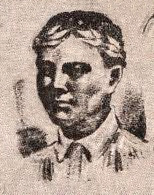
Credit: wikipedia.org
Pedro Bukaneg (March 1592 – c. 1630}
Was a Filipino poet. He is considered the "Father of Ilocano literature." Blind since birth, he is the believed to have authored of parts of the Ilocano epic Biag ni Lam-ang (Life of Lam-ang).
Being a romanticist, he composed poems and songs which were so tenderly sweet that he gained fame among the Ilokano masses as a gifted troubadour. Bukaneg was good not only in poetry but also in oratory.
Pedro Bukaneg was a Filipino poet. He is considered the "Father of Ilocano literature." Blind since birth, he is the believed to have authored of parts of the Ilocano epic Biag ni Lam-ang. A street inside the Cultural Center of the Philippines complex in Pasay, Philippines is named in his honor.
Born: March 1592, Bantay
Died: 1630

Credit:filipinaslibrary.org
Nicanor Abelardo
Kundiman
A composer of over 140 works that included sonatas, concerti and chamber music, Abelardo is best known for elevating the Philippine genre of the Kundiman into a western art-song form.
The Violin Sonata (1931) by Abelardo is a composition for violin and piano that does not fit the characteristics most associated with Philippine music, particularly the Kundiman that Abelardo is best known for during that time period.
Nicanor Santa Ana Abelardo was a Filipino composer known for kundiman songs he wrote before the Second World War.
Born: February 7, 1893, San Miguel
Died: March 21, 1934, Intramuros, Manila
Awards: Awit Award for Best Traditional Recording
Parents: Placida Sta. Ana, Valentine Abelardo
Genres: Kundiman; classical music
SPANISH PERIOD [1521-1871]

Credit: wikipedia.org
Antonio Abad
Antonio M. Abad (1894-1970) was a poet, playwright, essayist and novelist born in Barili (Cebu) and is frequently referred to as “The Greatest Hispanic Filipino Novelist after Rizal”. In 1927, he published his first novel El Último Romantic.
Antonio Abad y Mercado was a prominent Filipino poet, fictionist, playwright, and essayist.
Born: May 10, 1894, Barili
Died: April 20, 1970
Books: Magda: A Three-act Play
Education: University of San Carlos - Talamban Campus
Language: Cebuano, Spanish
Notable awards: Premio Zóbel, Premio Literario Filipino de la Mancomunidad
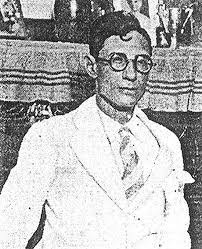
Credit: alchetron.com
Jesus Balmori
He wrote three novels: Bancarrota de Almas (Failure of the Soul), Se Deshojó la Flor (I Tear The Pages Out of The Flower), and Pájaros de Fuego (Birds of Fire) which was completed during the Japanese occupation.
Born: January 10, 1887, Ermita, Manila
Died: May 23, 1948, Mexico City, Mexico
Books: Birds of Fire: A Filipino War Novel
Education: University of Santo Tomas (UST), Colegio de San Juan de Letran
Language: Spanish
PERIOD OF ENLIGHTENMENT(1872-1898)
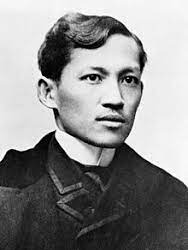
Credit: tatlerasia.com
José Protasio Rizal Mercado y Alonso Realonda
He was a prolific poet, essayist, and novelist whose most famous works were his two novels, Noli Me Tángere (1887) and its sequel, El filibusterismo (1891).
José Protasio Rizal Mercado y Alonso Realonda was a Filipino nationalist, writer and polymath active at the end of the Spanish colonial period of the Philippines. He is considered the national hero of the Philippines.
Born: June 19, 1861, Calamba
Died: December 30, 1896, Rizal Park, Manila
Full name: José Protacio Rizal Mercado y Alonso Realonda
Siblings: Paciano Rizal, Saturnina Hidalgo, Concepción Mercado, MORE
Parents: Teodora Alonso Realonda, Francisco Mercado, Francisco Rizal
Spouse: Josephine Bracken (m. 1896–1896)

Credit: bayaniart.com
Marcelo Hilario del Pilar y Gatmaitán
Also known by his pen name Plaridel, was a Filipino writer, lawyer, journalist, and freemason. In 1882 Del Pilar founded the newspaper Diariong Tagalog to propagate democratic liberal ideas among farmers and peasants. In 1888 he defended José Rizal's polemical writings by issuing a pamphlet against a priest's attack, exhibiting his deadly wit and savage ridicule of clerical follies.
Marcelo H. Del Pilar is the most famous journalist in our history and is also considered as the father of Philippine journalism . His contributions as a lawyer, revolutionary, and propagandist emulates his patriotism, bravery, and intelligence.
Born: August 30, 1850, Bulacan
Died: July 4, 1896, Old Hospital de la Santa Creu, Barcelona, Spain
Nickname: Plaridel
Siblings: Toribio H. del Pilar, Fernando del Pilar, Valentín del Pilar, MORE
Children: Anita H. del Pilar de Marasigan, MORE
Parents: Blasa Gatmaitán, Julián Hilario del Pilar
THE AMERICAN REGIME (1898-1944)

Credit: alchetron.com
Adelina Guerrea
Adelina Guerrea was the first woman poet in the Philippines who was good in Spanish. She obtained the Zobel prize in her song El Nido . (The Nest).
Occupation writer, journalist, poet, playwright, historian, linguist
Alma mater Santa Scholastica de Manilla
Died April 29, 1971, Madrid, Spain
María Adelaida Gurrea Monasterio (La Carlota, Negros Occidental, Philippines, September 27, 1896–Madrid, April 29, 1971) was a Philippine journalist, poet and playwright in Spanish.

Credit: peoplepill.com
Macario Adriatico
(10 Marso 1869-14 Abril 1919)
Macario Adriatico wrote of a legend of Mindoro entitle La Punta de Salto (The Place of Origin).
Born: March 10, 1869
Died: April 14, 1919
Scholar, journalist, and politician; known as the “Father of Manila’s City Charter
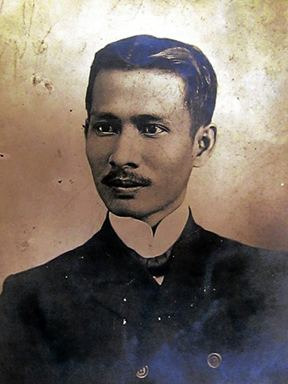
Credit: alchetron.com
Fernando Ma. Guerrero
The king of Balagtasan. His poetry book Crisálidas was published in 1914. Subsequently, he published another verse compilation called Ayes y Flores. Guerrero died on June 12, 1929, coinciding with that year's anniversary of the República Filipina (Philippine Republic). A school in Paco, Manila, was named after him in his honor.
Guerrero was the major lyric poet before and after the revolution, until the introduction of English literature in our schools. Known as the “Prince of Filipino lyric poets” in Spanish, he also played the flute and guitar. In Spanish lyric poetry, he was unsurpassed by his contemporaries.
Born: May 30, 1873, Manila
Died: June 12, 1929, Philippines
Full name: Fernando María Guerrero Ramírez
Children: Evangelina Guerrero Entrala
Education: University of Santo Tomas (UST), Ateneo de Manila University
Nationality: Philippine
Previous office: Member of the Philippine Assembly (1907–1909)
0 notes
Text
In Lieu of Twitter Going Dark Pt. 2
I wasn’t intending on doing this again on Tumblr, but given what could happen with Twitter, and people’s interests, I figured I would do a big charity thread for as much as I can fit in a post. I may have to split them into multiples, at which point I will edit this one to provide links to the others.
If you find this type of information important and want to learn about new charities (or submit others) I have a discord server that I will also link to in this to join. As always, the goal of this is to showcase places to donate your money or other resources to. Again, they might need more than money! Maybe they need a social media manager. Maybe they need someone else to offer rides or information. If you find yourself in a position to do something but you’re broke don’t let the money stop you.
Voting Rights Organizations
Fair Fight :: https://fairfight.com/
- [Georgia-centric] Primarily focused in Georgia, Fair Fight started an off-shoot called Fair Fight Action to counter voter suppression efforts across the United States after the 2018 election.
Jolt :: https://jolttx.org/
- [Texas-centric] Voting rights organization centered on getting young Latine voters engaged and involved in advocating for rights like climate justice, healthcare, education, respect for immigrant families and protecting voting rights.
Fair Vote :: https://www.fairvote.org/
- [US-centric] An organization focused on electoral change in the American voting system. Main strategy is to bring in ranked choice voting, allowing voters to rank their choice of candidate for a race.
Native American Voting Rights :: https://vote.narf.org/
- [US-centric] organization dedicated to improving greater access to voting for indigenous communities and fight against gerrymandering practices that would divide their collective voices.
Black Voters Matter Fund :: https://blackvotersmatterfund.org/
- [US-centric] Organization that works to bring power to Black communities by bringing more equitable voting access to those communities, who are often underserved and thus highly discounted in elections.
Democratice Socialists of America :: https://www.dsausa.org/
- [US-centric] political and activist organization that's as much about electing politicians in line with their values as it is about organizing local to advocate.
NextGen America :: https://nextgenamerica.org/
- [US-centric] organization centered on educating, registering, and mobilizing the youngest voters we have. They have five states where they can register and act in person, but a number of online opportunities to engage and help
Investigative Journalism, Muckraking, Speaking Out
Center for Investigative Reporting :: https://revealnews.org/
- [Mostly US-centric] Home of the podcast Reveal, the Center for Investigative Reporting is a non-profit journalism organization dedicated to thoughtful, thorough reporting on a variety of issues. They were one of the lead reporting outlets on the Panama Papers from a few years ago, so while they focus much on the States they do cover international stories quite often.
Palabra :: https://www.palabranahj.org/
- [US-centric] a platform run by the National Hispanic Journalists Association, palabra provides a place for freelance journalists to tell stories for and about the Latine and other communities.
ProPublica :: https://www.propublica.org/
- [US-centric] Founding in 2007, ProPublica is a group of journalists who cover a variety of stories across the country and they are primarily funded through donations.
TruthOut :: https://truthout.org/
- [US-centric] Non-profit news organization founded in 2001 to provide reporting and commentary on social justice issues. Primarily donor-supported, dedicated to transparency about where their money comes from.
Prison Journalism Project :: https://prisonjournalismproject.org/
- [US-centric] organization that trains prison inmates how to be journalists to bring better, more accurate reporting about the industrial prison complex in the country.
Whistleblower Aid :: https://whistlebloweraid.org/
- [US-centric] organization that provides legal aid and protection for people who want to disclose illegal conduct of a government or organization both here and abroad.
Post One.
Post Three.
Post Four.
1 note
·
View note
Text
Sonia Gutierrez dreamed of returning to her hometown of Denver as a television reporter for the city's defining news station: KUSA 9News. When she finally achieved it, however, it came at too steep a cost, she says.
Gutierrez says she was told that she could report on immigration, an issue about which she cares deeply, but only if she were to state her own immigration status on air in every story on the subject.
"I was put in a box simply for who I am," Gutierrez says.
She had never tried to hide that her parents had brought her as a baby from Mexico without documentation. But Gutierrez, 30, says she balked at the station's directive. She was told she could continue pitching stories about immigration, but, she says, she was asked to pass off her ideas and sources to other reporters.
Gutierrez is no longer with KUSA. Nor are two other Latina reporters. One had pushed editors to involve Black and Latino colleagues in more decisions about news coverage. The other's contract was not renewed five months after she had returned after having a stroke. She, too, had challenged station leaders on how they cover issues affecting Latinos in Colorado.
Over the course of a year, from March 2020 to March 2021, KUSA allowed each of the women's contracts to lapse without renewal, the way television stations typically part with their journalists.
"It is racist to require a Latino reporter, a Hispanic reporter, to disclose their own immigration status [to viewers] before reporting on immigration," says Julio-César Chávez, the vice president of National Association of Hispanic Journalists.
The outcry has focused an unwanted glare on Tegna, one of the nation's largest and most prominent owners of local television stations, just as the company faces claims of racial bias from a dissident investor.
"9News is the market leader in Denver and has been for decades," KUSA news director Megan Jurgemeyer says, "Having worked at another station in town, it was always viewed as the top competition and who we wanted to beat."
9News is unusually woven into the fabric of its parent company. Tegna's CEO Dave Lougee used to be the station's news director. KUSA's general manager, Mark Cornetta, is also the executive vice president of Tegna Media, the company's local television division. And Patti Dennis, a Tegna vice president and director of recruitment, is herself a former KUSA news director who still works out of the station's main building in Denver. All three are white, as are Jurgemeyer and Ryan.
Parent company faces its own issues with race
Tegna faces its own allegations of racial bias. An activist hedge fund, Standard General LP, recently nominated rival directors, saying it wanted to diversify the company's largely white board.
In an April federal securities filing, Standard General accused Tegna of racist practices stretching back years.
In 2019, a sports anchor at the company's Phoenix station accused its general manager — recently promoted from a job as KUSA's sales manager — of making "loud and unwelcome racist and sexist comments about coworkers" at a baseball game, in a civil complaint reviewed by NPR
Jamie Torres, a Denver city council member, was among the Latina state and local public officials who met twice with KUSA executives following the dismissal of the three journalists. She says the meetings left her unconvinced that there would be real progress beyond some changes in language and style.
"The conversation felt just incredibly transactional," Torres says.
And it renewed long-held frustrations: Torres says the three Latina journalists had been hired after an earlier round of discussions between the station and Denver-area Latino officials about representation at KUSA.
"Why Don't You Pitch It To Telemundo?"
While in college, Gutierrez interned at the local affiliate of the Spanish-language network Telemundo. Back then, it was housed inside KUSA's headquarters. Though owned by Tegna, KUSA is an affiliate of NBC, and Telemundo is part of NBC's parent company, Comcast.
As Gutierrez rose at Telemundo Denver, she also pitched stories to KUSA.
She says she often heard back: "That's a great story idea, why don't you pitch it to Telemundo?" Her response: KUSA also needed to serve Latino families — the ones who speak English.

"After a while, when stories wouldn't get picked up, I would just take it upon myself to do the interviews, write up a little [script] and give it to the anchors and say, 'It's done.' To the producers, 'It's done. You want it or not?' " Gutierrez says it was easier to hand off the idea fully baked.
After a stint at a station in Columbia, S.C., Gutierrez returned to KUSA as a reporter. She says KUSA leaders told her that she could be a defining person for the station, someone who would thrive there. By her telling, Gutierrez ignored the little slights that accreted.
Then, Gutierrez says, she was told she had to disclose that she had been a DREAMer, protected from deportation through the Obama-era policy called Deferred Action for Childhood Arrivals, or DACA, before she became a legal permanent resident through marriage. She didn't see why viewers needed to be told that in each of her immigration reports.
Gutierrez says she received no response when she asked for concrete examples of how her status had compromised her reporting. And when she refused to go along, Gutierrez says, she was told she would have to pass her story ideas and sources on immigration to other reporters.
"It's not like there was something wrong with me or my reporting," says Gutierrez, who left last year. "There was just something wrong with who I was — a liability to them."
Allegations of unfulfilled promises
Aguirre, 34, a Mexican-American who grew up near Midway Airport on the South Side of Chicago, says she had been inspired to become a journalist to tell stories about Latinos that were not simply about crime and immigration.
She came to Denver after being an anchor at a smaller station in Flint, Mich.
Aguirre says she believed her pursuit of community-driven news brought value.
"I can tell a story in a much different way than a female white reporter can because I lived it. I know the questions to ask," Aguirre says.
In April 2019, Aguirre suffered a stroke that resulted in a traumatic brain injury and paralyzed her on her left side; as she built back strength and returned in the fall.
After roughly six months, as new newsroom leaders rotated in she did not return to the anchor's chair. Aguirre alleges in a formal amended complaint she filed with the U.S. Equal Employment Opportunity Commission earlier this year.
Aguirre left the station in March 2020. Her attorney, Iris Halpern, says the complaint is currently in mediation.
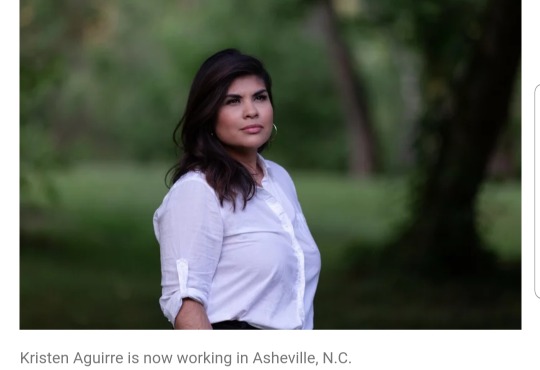
"Because they're KUSA, they can just get somebody else," Aguirre says. "They can get another Latino who fills that Brown category, who's cheaper, younger, greener and more afraid to ask any questions. Although I was recovering [from the stroke], I was still that woman who would push back. So I'd be in those meetings and I would ask 'Why?' "
"I was instructed not to wear my hair in a bun"
After two years as a reporter in Bakersfield, Calif., Lori Lizarraga says, she was told by 9News that she would be an asset and she joined the station.
Lizarraga, whose mother was born in Ecuador and whose father is first generation Mexican-American, remembers saying, "'My voice will never track this [the word illegal] slew of words." She says she ended up shying away from stories involving immigration.
Lizarraga recalls even having her hairstyles vetoed. She wrote in Westword, "After six months, I was instructed not to wear my hair in a bun with a middle part anymore — a style I have seen and worn as a Mexican and Ecuadorian woman all my life. Not a good look, I was told."
"We Would Have Had Reporters On Every Corner"
Lizarraga, who left in March, says she hit an inflection point early last year. Colorado state regulators had just announced a record fine against a Canadian energy giant whose plant had been polluting nearby neighborhoods for years. She read up on it as she raced with a colleague in the official KUSA 9News van to the press conference.
"Ash was falling from the sky onto people's cars and yards and playgrounds," Lizarraga recalls. "Water was impacted."
She was struck by something else: The communities affected were heavily Latino. Yet, she says, state regulators had not consulted with those communities or even put out information in Spanish. And back in the newsroom, she says, producers focused solely on the size of the fine — potentially up to $9 million.

"I was very upset and I said, 'You know, if this were a community in a ZIP code just up the street with a different demographic, we would have had reporters on every corner ' " to interview residents, Lizarraga says. "And because this is a Spanish-speaking, low-income, largely immigrant community, we don't have an interest. We are choosing what is newsworthy based on what you care to talk about, not what is actually newsworthy."
"We have to confront management"
At KUSA, Lizarraga says supervisors resented her for demanding that African American colleagues be consulted on coverage about Floyd's murder and the protests. She thought they had a right to weigh in on questions such as: How much of the video of Floyd's death should be shown? When and if the word "riot" was appropriate? How much coverage should there be of police tactics?
Lizarraga says she rallied colleagues of color to object when the station decided to stage a town hall meeting on race and equity hosted solely by a white anchor. Instead of channeling that fervor, Lizarraga says, it was largely deflected.
"We can't be exhausted, we can't be scared," Lizarraga recalled telling colleagues. "We have to confront management and tell them that we have ideas and that we deserve a spotlight right now."
Meanwhile, she says, she was not recognized for the initiative she showed, such as the data-driven pieces that officials and advocates said (in text messages reviewed by NPR) served as a road map for government agencies seeking to arrange COVID-19 testing in heavily affected Black and Latino neighborhoods.
Life after KUSA 9News
Gutierrez now works across town at Rocky Mountain PBS. Aguirre is a local news anchor and reporter in Asheville, N.C., part of a television market that is about half the size of that of Denver.
Lizarraga returned to her family home in Dallas. In late March, she published her allegations against KUSA in Westword. "What Lori Lizarraga did took a lot of courage and bravery," the NAHJ's Chávez says, singling out Gutierrez and Aguirre for praise as well. "Journalism is an industry where a lot of people are mistreated, a lot of employees are mistreated, and discriminated against, and then people simply go quiet.
"For Lori to actually tell the world how bad the situation was, how bad she was being treated and how racist some of the management policies were, that takes real courage. She put her entire career in jeopardy."
In October, the Colorado ACLU will honor the three women for "fighting discrimination in the newsroom."
#🇲🇽#journalism#news reporters#racism#KUSA 9News#usa#united states#colorado#national association of hispanic journalists#tegna#denver#denver colorado#telemundo#NBC#canada
6 notes
·
View notes
Text
Joe Biden: 'Unlike the African American Community ... the Latino Community Is an Incredibly Diverse Community'
Joe Biden: ‘Unlike the African American Community … the Latino Community Is an Incredibly Diverse Community’


Former Vice President Joe Biden remarked in an interview released Thursday that “unlike the African American community, with notable exceptions, the Latino community is an incredibly diverse community.”
Biden was addressing the National Association of Black Journalists (NABJ) and National Association of Hispanic Journalists (NAHJ) Joint Virtual Convention. Portions of the interview were aired…
View On WordPress
#2020 Election#hispanics#immigration#Joe Biden#latinos#Media#National Association of Black Journalists#National Association of Hispanic Journalists#Politics
0 notes
Text
instagram
Madison will have her first live performance for Te Amo at the NAHJ event (National Association of Hispanic Journalists. So proud of our girl! It's going to be on Telemundo and I believe you can watch through a link she posted on her stories.
Also, stream Te Amo if you haven't yet!
#madison reyes#te amo#julie and the phantoms#julie molina#jatp cast#jatp#charlie gillespie#jeremy shada#owen joyner#luke patterson#alex mercer#reggie peters#jadah marie#flynn jatp#willie jatp#new music#youtube#spotify#music video#latinmusic#latin artist#Instagram
21 notes
·
View notes
Text
ABC NEWS ANNOUNCES LAURA MAYER AS NEW EXECUTIVE PRODUCER OF PODCAST PROGRAMMING AT ABC AUDIO AND ERIC ORTEGA AS EXECUTIVE PRODUCER OF ‘ABC NEWS LIVE PRIME WITH LINSEY DAVIS’
ABC News president Kim Godwin sent the following note to the news division announcing Laura Mayer is the new executive producer of Podcast Programming at ABC Audio, and Eric Ortega is the new executive producer of ‘ABC News Live Prime with Linsey Davis.’
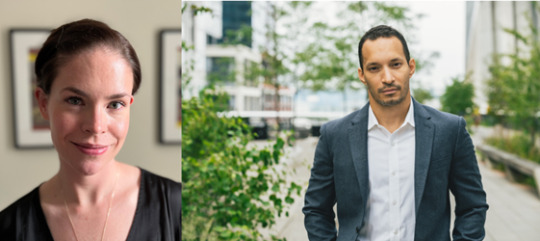
Pictured from left: Laura Mayer (credit: Dan Blondell), Eric Ortega
ABC News,
I am pleased to share that we are kicking off the new year with two new executive producers joining our team. Laura Mayer is the new executive producer of Podcast Programming at ABC Audio, and Eric Ortega is the new executive producer of the multi award-winning “ABC News Live Prime with Linsey Davis.”
Laura Mayer will be the creative lead of our stellar podcast team, which has big plans for 2023, including the launch of a new true crime series next week and the return of “Life Out Loud with LZ Granderson” later this month. She will work closely with Josh Cohan, director of Podcast Programming, to develop ABC Audio’s content strategy and then implement that strategy with the production team, overseeing the process from greenlight to publish. Laura will report to Liz Alesse, vice president of ABC Audio.
Laura has over a decade of experience in podcasting and worked as the founding producer on influential projects, including Malcolm Gladwell’s “Revisionist History,” “Happier with Gretchen Rubin,” “The Dream” and “The Just Enough Family.” She was the first employee at Slate’s podcast network, Panoply, and served as executive producer of New Show Development at Stitcher. In 2019, Laura co-founded the production company Three Uncanny Four Productions with Sony Music, and served as COO of the joint venture.
Laura also has strong journalism roots. After graduating from Northwestern University's Medill School of Journalism, she began her public radio career at WNYC, New York Public Radio, working on many programs such as “On the Media.”
Eric Ortega joins our talented ABC News Live team at a very exciting time. He will oversee “ABC News Live Prime with Linsey Davis” and all of ABC News Live’s evening programming, which serves as the primary content engine of the streaming channel. He will report to Seni Tienabeso, executive director of ABC News Live.
Most recently, Eric worked as senior producer at VICE News, where he assisted in relaunching “VICE News Tonight.” He also created and served as showrunner for the political series “Breaking the Vote” and the digital show “Field Notes.” In 2021, he won two Emmys for his work: Outstanding Breaking News coverage of the George Floyd protests and Outstanding Newscast.
Previously, Eric spent seven years at NBC/MSNBC, climbing his way up the ladder from page to line producer. During this time, Eric reported on major news events such as the 2016 presidential election, the 2015 Paris attacks and the Parkland shooting. He also played a vital role in launching “Ronan Farrow Daily,” “Meet the Press Daily” and “UP with David Gura.” Before news, Eric worked in the U.S. Senate and House of Representatives, at the 2012 Democratic National Convention as deputy press secretary, and as a Congressional Hispanic Caucus Institute Public Policy fellow. He is a proud member of the National Association of Hispanic Journalists.
With these new EPs at the helm, I look forward to what’s next for these two vital parts of our news division.
Please join me in congratulating Eric and Laura and welcoming them to ABC News!
#oneabcnews
Kim
0 notes
Quote
I believed in social justice even before I knew it's definition and also in unlimited solidarity without expectation of recompense. I have not studied Marxism (or any philosophy, for that matter) in great depth, but I have studied the theme because I would be ignorant if it were totally unknown to me. In my house, people talked a lot about national and international politics, my country's Wars of Independence, the political frustrations of the First Republic, and World War II, about which I was interested, though I was very young. I believe that my father was affiliated with the Authentic Revolutionary Party, but he was not a politician. In my house, I learned the work ethic and humanism. Later, when I was a student in Havana, I sympathised with the Orthodox Party, which supported administrative reform, anti-corruption, and national sovereignty. That was not unusual because most of the young people, especially students, used to march in support of that party. Fidel Castro was associated with that party, but I knew him only by name, from reading in the newspapers about his battles against corruption as a student. I gained political awareness during the Moncada Trial of 1953, and, more specifically, when I heard Fidel's famous pronouncement, History Will Absolve Me. I was in the courtroom as a newly-graduated journalist, and I was very bold to be there. I was deeply moved by what Fidel said about the reasons for the Revolution and about the socio-political programme of his group. The essence of the programme involved structural changes to achieve social justice and human rights. When I heard him, although I was willing to follow the ideas he enunciated, I thought that in Cuba these ideas would be an unattainable chimera. I was wrong. The incipient Revolution triumphed, and I became a part of it.
Marta Rojas - The Sweet Enigma of a Writer's Life: A Personal Narrative (Translated by Elba Birmingham-Pokorny)
Miriam Decosta-Willis (ed.) - Daughters of the Diaspora: Afra-Hispanic Writers (2003)
4 notes
·
View notes
Link
A memo obtained by Campus Reform reveals that the UNC Hussman School of Journalism and Media considered "diversity of thought" to be in conflict with its efforts to achieve social justice objectives.
Hussman Dean Susan King wrote the August 1, 2020 memo to university Chancellor Kevin Guskiewicz. She stated, "There is a fundamental conflict between efforts to promote racial equity and understandings of structural racism, and efforts to promote diversity of thought. These two things cannot sit side by side without coming into conflict.”
King wrote the memo in anticipation of Nikole Hannah-Jones joining the University of North Carolina at Chapel Hill faculty and teaching a class based on the "1619 Project."
…
Despite an apparent willingness to deprioritize diversity of thought, the plan contains pages of recommendations aimed at advancing racial diversity according to a particular understanding of race and racism.
At the time the memo was written, "it [was] possible for a Hussman student to graduate without taking a course focused on the question of diversity," according to the dean. King wrote, "Faculty believe that is a problem."
The Hussman School was already requiring its faculty to incorporate diversity into their class materials, but King write that this was not enough. "Although each class taught in the school must have a syllabus that reflects the value of diversity," King writes. "Faculty see it as spotty and they worry a new course or courses focused only on diversity will weaken the need to accent racism, social justice, and cultural competency throughout the curriculum."
To fix this problem, the memo determined that future students should be required to take a race-focused class in order to graduate. By fall 2022, school leaders planned to "develop a required core foundational course in cultural competency that includes a global perspective as well as race, ethnicity, and structural racism for all of our students."
The memo also stated that the curriculum of a Newswriting course should "incorporate style guides from the Asian American Journalist Association, National Association of Black Journalists, National Association of Hispanic Journalists, Native American Journalists Association National Gay and Lesbian Journalists Association, and Transjournalist Association."
…
In addition to incorporating new style guides into the curriculum, the Hussman School also planned to "incorporate a racial analytic throughout all of our courses beginning the Fall 2020 semester."
UNC told Campus Reform in a statement that, "Following [a] retreat, the Chancellor asked deans to each send a memo answering three questions related to structural racism in their units and on campus."
1 note
·
View note
Text
Advice for early career and student journalists
I’m making this post because students will often reach out to me for advice. I’m always happy to chat, but thought I would do a brain dump on tumblr as an easy-to-share resource. I’ll continue adding things as I think of them.
First, who I am: Right now, I’m the audience engagement editor at the Center for Public Integrity, one of America’s oldest, Pulitzer-prize winning, nonprofit newsrooms. I handle digital strategy, social media, partnerships, crowdsourced investigations, newsletters, metrics, SEO and help with membership building. I also sometimes report when I can. -whew- Before that, I was doing audience engagement at POLITICO. I hope my experience can be useful to you! ✨
Low-hanging fruit:
Network but IRL: I feel like I could have done this more when I was an undergraduate student. There are a ton of groups that regularly host events like the Online News Association, Society of Professional Journalists, the Asian American Journalists Association, National Association for Black Journalists, National Association for Hispanic Journalists and more. I personally like smaller events so that you can get to know people on a more intimate level. Conferences are sometimes intimidating but special tracts or scholarships for students are really great opportunities that you should take advantage of.
Reach out to people you admire: First, they might actually end up being your colleague or superior one day. It’s also great to get advice from journalists you want to emulate. If you want a similar career, learn from the best!
Have a portfolio: It doesn’t have to be fancy –– my first portfolio was on tumblr! It helps to have your work in one place so employers can have your information and experience on hand.
Build your social presence: It doesn’t just help with clout. Employers can get a sense of who you are and based on what you tweet (since journalist Twitter is still a thing), it shows that you’re thinking critically about the conversations going on in the industry.
Keep up with industry news: Read Nieman Lab, Poynter, Pew research etc. You’ll be remembered not just for reporting, but for executing journalism smartly. Plugging into tough conversations in the industry also helps build your news judgement.
Be active at your campus paper: It’ll help you get experience and internships which lead to jobs!
P.S. A job interview starts the minute you walk through the door or pick up a phone, not when you’re sitting down across from the hiring manager. Use every minute you have with them to impress.
For the workplace:
Journalism is best when it’s collaborative: Aim to work with people who will elevate your journalism. They might be on a different team from yours entirely.
Go the extra mile, but know your limits: This one is pretty self explanatory. If you can do something, say yes. But if your plate is full you should communicate that to your editor and they will help you reprioritize. They should work with you, especially if you’re still in school.
Ask questions: I still sometimes hesitate to ask my director questions. But it’s important to make sure you have your ducks in a row. Depending on the story, asking questions might even be a matter of safety.
Speak up: If you have an idea you want to spitball, share it with your editor or at the all staff meeting. It might be intimidating, but it’s better to be generous with your ideas. You can’t build from nothing. Btw, you might know something that other people don’t –– even if you feel you’re the least experienced because of your age. You have something to contribute and people should recognize that.
Roll with the punches: Don’t beat yourself up too badly when you make a mistake. I sometimes think back on errors I’ve made, especially while covering breaking news. I learned from those mistakes and did better the next time. That’s what counts.
Join your diversity committee: If you care about an equitable world, start with your newsroom. If you don’t have a diversity committee, start one!
Join your coworkers for drinks or hangs: Camaraderie amongst coworkers builds a strong team. I'm not promoting alcoholism...but journalists do have strong livers for a reason.
Keep your receipts: If there’s ever an issue with senior management, write the incident down, export your emails and screenshot your messages. The first thing HR will ask for is proof. Also, don’t send anything you don’t want other people to see.
For reporting:
Think outside the box: With interactives, video, graphics and social media, there’s a ton of ways to experiment with different forms of storytelling and soliciting feedback from audiences to help inform your work. You’ll be remembered for implementing something new.
Don’t get attached: Editing is a bitch, no matter what the medium. You’re gonna see a lot of red lines or cuts. Don’t be discouraged. It’s normal! Unless you can make a case for why something is really strong or necessary to include, you might want to check yourself and see if you’re being too precious about your work. I found that my editors were wise enough to make decisions that strengthened my copy.
Listen humbly: Always consider the possibility that the story that you originally had in mind could be completely wrong. Journalists are not experts at everything. Be flexible and report on what you find. Treat people with dignity and compassion.
Journalism is a service: Before you report a story, ask yourself who you’re serving by reporting it. How are you contributing to the narrative? What impact do you hope this will make? Who are you holding accountable? How are you lifting people up? Who isn’t being heard?
Diversify your sources: Make sure POC, women, LGBTQ+ are represented in your work, even if they’re not explicitly talking about their identities, you’re highlighting their voices and expertise.
General advice:
You are your best hype-man: No award or accomplishment is too small. Celebrate! And #humblebrag.
Question everything: Even your editor and yourself!
Know your worth: Don’t let anyone drag you down. And if you can’t afford it, don’t work for free.
Objectivity isn’t real: “Both sides” journalism is not it. Why? It fails to acknowledge injustice and structural inequalities our country is built on. The role of media is to use it’s power and influence to inform and hold people accountable for upholding those structures. If something is wrong, call it out.
Wellp, these are all the things that I can think of off the top of my head. Let me know if I missed anything! :’)
#journalist#journalism#tumblr#journalists on tumblr#student#dark academia#dark academia newsroom#career advice#aspiring journalist#editor#journalists of color#writers of color#writing#spilled ink#writers#writer#words#career#nonprofit#newsroom#thoughts#reporting#student journalism#student journalist
33 notes
·
View notes
Text
Civil Rights Icons' Mothers, Lost Ancient Cities and Other New Books to Read
https://sciencespies.com/history/civil-rights-icons-mothers-lost-ancient-cities-and-other-new-books-to-read/
Civil Rights Icons' Mothers, Lost Ancient Cities and Other New Books to Read
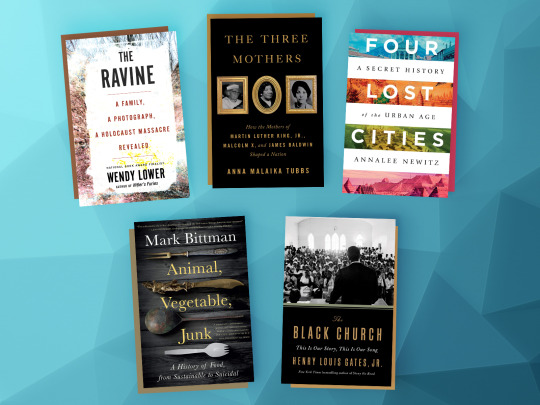
Anna Malaika Tubbs has never liked the old adage of “behind every great man is a great woman.” As the author and advocate points out in an interview with Women’s Foundation California, in most cases, the “woman is right beside the man, if not leading him.” To “think about things differently,” Tubbs adds, she decided to “introduce the woman before the man”—an approach she took in her debut book, which spotlights the mothers of Martin Luther King Jr., Malcolm X and James Baldwin.
“I am tired of Black women being hidden,” writes Tubbs in The Three Mothers. “I am tired of us not being recognized, I am tired of being erased. In this book, I have tried my best to change this for three women in history whose spotlight is long overdue, because the erasure of them is an erasure of all of us.”
The latest installment in our series highlighting new book releases, which launched last year to support authors whose works have been overshadowed amid the Covid-19 pandemic, explores the lives of the women who raised civil rights leaders, the story behind a harrowing photograph of a Holocaust massacre, the secret histories of four abandoned ancient cities, humans’ evolving relationship with food, and black churches’ significance as centers of community.
Representing the fields of history, science, arts and culture, innovation, and travel, selections represent texts that piqued our curiosity with their new approaches to oft-discussed topics, elevation of overlooked stories and artful prose. We’ve linked to Amazon for your convenience, but be sure to check with your local bookstore to see if it supports social distancing–appropriate delivery or pickup measures, too.
The Three Mothers: How the Mothers of Martin Luther King, Jr., Malcolm X, and James Baldwin Shaped a Nation by Anna Malaika Tubbs
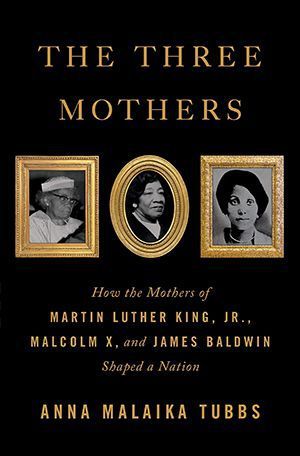
Ebenezer Baptist Church is perhaps best known for its ties to King, who preached there alongside his father, Martin Luther King Sr., between 1947 and 1968. The Atlanta house of worship proudly hails its ties to the Kings, but as Tubbs writes for Time magazine, one member of the family is largely left out of the narrative: King’s mother, Alberta.
The author adds, “Despite the fact that this church had been led by her parents, that she had re-established the church choir, that she played the church organ, that she was the adored Mama King who led the church alongside her husband, that she was assassinated in the very same building, she had been reduced to an asterisk in the church’s overall importance.”
In The Three Mothers, Tubbs details the manifest ways in which Alberta, Louise Little and Berdis Baldwin shaped their sons’ history-making activism. Born within six years of each other around the turn of the 20th century, the three women shared a fundamental belief in the “worth of Black people, … even when these beliefs flew in the face of America’s racist practices,” per the book’s description.
Alberta—an educator and musician who believed social justice “needed to be a crucial part of any faith organization,” as Tubbs tells Religion News Service—instilled those same beliefs in her son, supporting his efforts to effect change even as the threat of assassination loomed large. Grenada-born Louise, meanwhile, immigrated to Canada, where she joined Marcus Garvey’s black nationalist Universal Negro Improvement Association and met her future husband, a fellow activist; Louise’s approach to religion later inspired her son Malcolm to convert to the Nation of Islam. Berdis raised James as a single parent in the three years between his birth and her marriage to Baptist preacher David Baldwin. Later, when James showed a penchant for pen and paper, she encouraged him to express his frustrations with the world through writing.
All three men, notes Tubbs in the book, “carried their mothers with them in everything they did.”
The Ravine: A Family, a Photograph, a Holocaust Massacre Revealed by Wendy Lower

Few photographs of the Holocaust depict the actual moment of victims’ deaths. Instead, visual documentation tends to focus on the events surrounding acts of mass murder: lines of unsuspecting men and women awaiting deportation, piles of emaciated corpses on the grounds of Nazi concentration camps. In total, writes historian Wendy Lower in The Ravine, “not many more than a dozen” extant images actually capture the killers in the act.
Twelve years ago, Lower, also the author of Hitler’s Furies: German Women in the Nazi Killing Fields, chanced upon one such rare photograph while conducting research at the United States Holocaust Memorial Museum. Taken in Miropol, Ukraine, on October 13, 1941, the photo shows Nazis and local collaborators in the middle of a massacre. Struck by a bullet to the head, a Jewish woman topples forward into a ravine, pulling two still-living children down with her. Robbed of a quick death by shooting, the youngsters were “left to be crushed by the weight of their kin and suffocated in blood and the soil heaped over the bodies,” according to The Ravine.
Lower spent the better part of the next decade researching the image’s story, drawing on archival records, oral histories and “every possible remnant of evidence” to piece together the circumstances surrounding its creation. Through her investigations of the photographer, a Slovakian resistance fighter who was haunted by the scene until his death in 2005; the police officers who participated in their neighbors’ extermination; and the victims themselves, she set out to hold the perpetrators accountable while restoring the deceased’s dignity and humanity—a feat she accomplished despite being unable to identify the family by name.
“[Genocide’s] perpetrators not only kill but also seek to erase the victims from written records, and even from memory,” Lower explains in the book’s opening chapter. “When we find one trace, we must pursue it, to prevent the intended extinction by countering it with research, education, and memorialization.”
Four Lost Cities: A Secret History of the Urban Age by Annalee Newitz
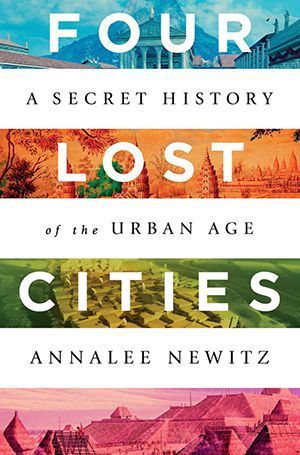
Sooner or later, all great cities fall. Çatalhöyük, a Neolithic settlement in southern Anatolia; Pompeii, the Roman city razed by Mount Vesuvius’ eruption in 79 A.D.; Angkor, the medieval Cambodian capital of the Khmer Empire; and Cahokia, a pre-Hispanic metropolis in what is now Illinois, were no exception. United by their pioneering approaches to urban planning, the four cities boasted sophisticated infrastructures and feats of engineering—accomplishments largely overlooked by Western scholars, who tend to paint their stories in broad, reductive strokes, as Publishers Weekly notes in its review of science journalist Annalee Newitz’s latest book.
Consider, for instance, Çatalhöyük, which was home to some of the first people to settle down permanently after millennia of nomadic living. The prehistoric city’s inhabitants “farmed, made bricks from mud, crafted weapons, and created incredible art” without the benefit of extensive trade networks, per Newitz. They also adorned their dwellings with abstract designs and used plaster to transform their ancestors’ skulls into ritualistic artworks passed down across generations. Angkor, on the other hand, became an economic powerhouse in large part thanks to its complex network of canals and reservoirs.
Despite their demonstrations of ingenuity, all four cities eventually succumbed to what Newitz describes as “prolonged periods of political instability”—often precipitated by poor leadership and unjust hierarchies—“coupled with environmental collapse.” The parallels between these conditions and “the global-warming present” are unmistakable, but as Kirkus points out, the author’s deeply researched survey is more hopeful than dystopian. Drawing on the past to offer advice for the future, Four Lost Cities calls on those in power to embrace “resilient infrastructure, … public plazas, domestic spaces for everyone, social mobility, and leaders who treat the city’s workers with dignity.”
Animal, Vegetable, Junk: A History of Food, From Sustainable to Suicidal by Mark Bittman
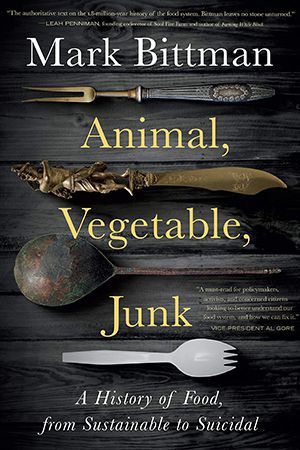
Humans’ hunger for food has a dark side, writes Mark Bittman in Animal, Vegetable, Junk. Over the millennia, the food journalist and cookbook author argues, “It’s sparked disputes over landownership, water use, and the extraction of resources. It’s driven exploitation and injustice, slavery and war. It’s even, paradoxically enough, created disease and famine.” (A prime example of these consequences is colonial powers’ exploitation of Indigenous peoples in the production of cash crops, notes Kirkus.) Today, Bittman says, processed foods wreak havoc on diets and overall health, while industrialized agriculture strips the land of its resources and drives climate change through the production of greenhouse gases.
Dire as it may seem, the situation is still salvageable. Though the author dedicates much of his book to an overview of how humans’ relationship with food has changed for the worse, Animal, Vegetable, Junk’s final chapter adopts a more optimistic outlook, calling on readers to embrace agroecology—“an autonomous, pluralist, multicultural movement, political in its demand for social justice.” Adherents of agroecology support replacing chemical fertilizers, pesticides and other toxic tools with organic techniques like composting and encouraging pollinators, in addition to cutting out the middleman between “growers and eaters” and ensuring that the food production system is “sustainable and equitable for all,” according to Bittman.
“Agroecology aims to right social wrongs,” he explains. “… [It] regenerates the ecology of the soil instead of depleting it, reduces carbon emissions, and sustains local food cultures, businesses, farms, jobs, seeds, and people instead of diminishing or destroying them.”
The Black Church: This Is Our Story, This Is Our Song by Henry Louis Gates Jr.
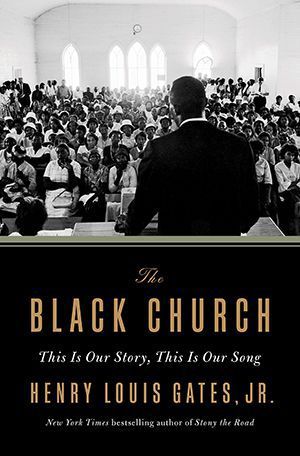
The companion book to an upcoming PBS documentary of the same name, Henry Louis Gates Jr.’s latest scholarly survey traces the black church’s role as both a source of solace and a nexus for social justice efforts. As Publishers Weekly notes in its review of The Black Church, enslaved individuals in the antebellum South drew strength from Christianity’s rituals and music, defying slaveholders’ hopes that practicing the religion would render them “docile and compliant.” More than a century later, as black Americans fought to ensure their civil rights, white supremacists targeted black churches with similar goals in mind, wielding violence to (unsuccessfully) intimidate activists into accepting the status quo.
Gates’ book details the accomplishments of religious leaders within the black community, from Martin Luther King Jr. to Malcolm X, Nat Turner and newly elected senator Reverend Raphael G. Warnock. (The Black Churches’ televised counterpart features insights from similarly prominent individuals, including Oprah Winfrey, Reverend Al Sharpton and John Legend.) But even as the historian celebrates these individuals, he acknowledges the black church’s “struggles and failings” in its “treatment of women and the LGBTQ+ community and its dismal response to the 1980s AIDS epidemic,” per Kirkus. Now, amid a pandemic that’s taken a disproportionate toll on black Americans and an ongoing reckoning with systemic racism in the U.S., black churches’ varying approaches to activism and political engagement are at the forefront once again.
As Gates says in a PBS statement. “No social institution in the Black community is more central and important than the Black church.”
#History
3 notes
·
View notes